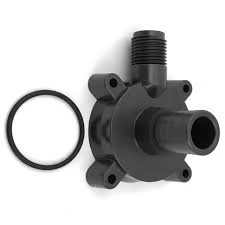Mobile:+86-311-808-126-83
Email:info@ydcastings.com
ops die casting
The Significance of Die Casting in Modern Manufacturing
Die casting is a pivotal manufacturing process that plays a significant role in various industries, from automotive to consumer electronics. Among the different casting techniques, die casting is known for its ability to produce intricate and precise metal components at a relatively high speed and low cost. This article explores the advantages of die casting and its impact on modern manufacturing.
At its core, die casting involves forcing molten metal under high pressure into a mold cavity. The molds, or dies, are made from hard materials such as steel, enabling them to withstand the substantial pressure and repeated use associated with the process. Typically, non-ferrous metals like aluminum, zinc, and magnesium are used, owing to their desirable properties such as low weight, corrosion resistance, and excellent mechanical strength.
The Significance of Die Casting in Modern Manufacturing
Additionally, die casting is highly efficient. The process allows for the mass production of parts, with production rates that can reach several hundred thousand units per year. This scalability not only meets high demand but also lowers the cost per unit, making it economically viable for large production runs. Furthermore, the rapid solidification of the molten metal contributes to a shorter cycle time, further enhancing productivity.
ops die casting

The versatility of die casting also deserves mention. It enables the production of complex shapes that would be difficult or impossible to achieve with other manufacturing techniques. This complexity allows designers greater freedom to create innovative designs, often leading to lighter and more efficient products. For instance, in the automotive industry, die-cast components contribute significantly to weight reduction, thereby improving fuel efficiency and reducing emissions.
Sustainability is another critical aspect of die casting. The process can be environmentally friendly if conducted efficiently. Aluminum and zinc can be recycled with minimal loss of material quality, and the energy consumption can be optimized to reduce carbon emissions. Many manufacturers are now implementing practices that focus on sustainability, ensuring that die casting not only meets the demands of productivity but also aligns with environmental considerations.
Despite its numerous advantages, the die casting process is not without challenges. The initial setup costs for creating dies can be substantial, making it less feasible for smaller production runs. Moreover, while die casting is excellent for metals with low melting points, it’s not suitable for all materials, limiting its applications in some areas.
In conclusion, die casting is a cornerstone of modern manufacturing, offering high precision, efficiency, and versatility while addressing sustainability issues. As industries continue to evolve, the importance of die casting will likely grow, paving the way for new innovations and applications. The process stands as a testament to the advancements in manufacturing technology, enabling the production of complex components that meet the ever-increasing demands of consumers and businesses alike. With ongoing improvements in methods and materials, die casting will continue to play a crucial role in the manufacturing landscape for years to come.
-
Understanding Metal Casting TechniquesNewsApr.02,2025
-
Understanding Exhaust Manifolds for Enhanced Engine PerformanceNewsApr.02,2025
-
The World of Metal FabricationNewsApr.02,2025
-
Key Components for Pump and Turbo EfficiencyNewsApr.02,2025
-
Essential Tools for Automotive Maintenance and RepairNewsApr.02,2025
-
Durable Valve Components for Effective Water ManagementNewsApr.02,2025











